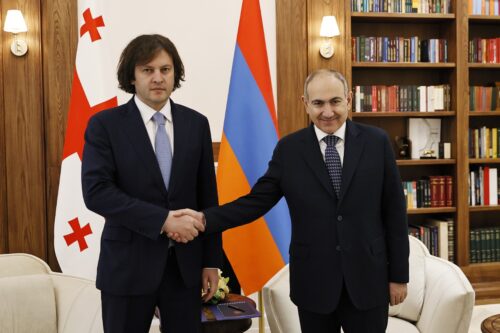
The Jerusalem Post: The interests of Iran and Russia clash over the “Zangezur corridor”: What lies on the peace table?
Russia-Iran tensions rise over the “Zangezur corridor”, The Jerusalem Post reports. Many high-level Russian officials in recent days have expressed support for this corridor, which will link Azerbaijan to Russia and Turkey, bypassing Armenian checkpoints. Iran is extremely unhappy with Russia’s support for this corridor, as it would sever the geographic connection between Yerevan and Tehran.
In parallel, Baku and Moscow have strong partnership ties. On the one hand, Baku is helping the West to wean itself off Russian oil and gas by offering itself as a viable alternative that can provide Europe with energy security. Baku supports Ukraine’s territorial integrity and has sent humanitarian aid to Kyiv.
“While Tehran is fuming over Putin’s support for using the Zangezur Corridor, Russia has attempted to overthrow the Armenian government and replace it with a more friendly regime. It appears that Moscow wanted to replace the Pashinyan government because they withdrew from the Collective Security Treaty Organization (CSTO), which the Armenian government views to be ‘creating threats to Armenia’s security, continued existence and statehood,’” reads the article.
Despite the fact that the Pashinyan government is closer to the West and Iran than it is to Moscow presently, it is critical to recall that trade relations between Armenia and Russia remain strong. “Armenia remains the main hub for circumventing the West’s anti-Russian sanctions. It is obvious that the Armenian economy, given its small volume, does not have its own resources for such trade turnover. A paradoxical picture emerges when on the one hand the West finances Ukraine’s resistance against Russian aggression, and on the other hand allows Armenia to make money on this very aggression, actually encouraging re-export schemes through Armenia,” The Jerusalem Post writes.
However, some Western commentators have been critical of Putin’s recent visit to Azerbaijan, claiming that Baku is taking a pro-Russian and anti-Western stance.



